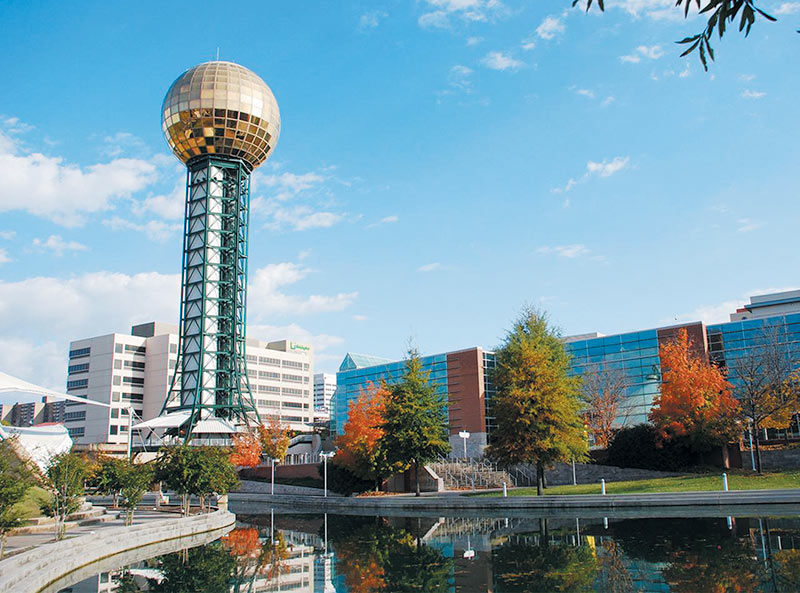Visiting the Southeast and Discussion on a Diversity Panel
Visiting the Southeast and Discussion on a Diversity Panel
The 85th Annual Meeting of the APS Southeastern Section
 It might be strange for someone from Illinois to head to a conference catered to colleges and professionals in the southeastern states. However, all physics conferences have proved to be opportunities to network, learn about ongoing research, and provide information on different areas of physics. Overall, physics conferences are learning opportunities for everyone, so I was determined to get out of my comfort zone and attend one of these conferences. But before I tell about my conference experience, let me tell you a little bit about myself and my SPS chapter. I just finished my second year as a double physics and mathematics major at Millikin University in Decatur, Illinois. Furthermore, I am the president of Millikin University’s SPS chapter, and I am currently serving as the associate zone councilor of Zone 8 in the SPS National Council.
It might be strange for someone from Illinois to head to a conference catered to colleges and professionals in the southeastern states. However, all physics conferences have proved to be opportunities to network, learn about ongoing research, and provide information on different areas of physics. Overall, physics conferences are learning opportunities for everyone, so I was determined to get out of my comfort zone and attend one of these conferences. But before I tell about my conference experience, let me tell you a little bit about myself and my SPS chapter. I just finished my second year as a double physics and mathematics major at Millikin University in Decatur, Illinois. Furthermore, I am the president of Millikin University’s SPS chapter, and I am currently serving as the associate zone councilor of Zone 8 in the SPS National Council.
While the Southeastern Section of the American Physical Society (SESAPS) conference hosted many excellent research presentations, there is one noteworthy event that I would like to highlight. During the Friday of SESAPS, the conference hosted a paneled discussion on the “Diversity of Physics: How to Be an Ally.” The panel discussed that although, generally, awareness of the experiences of underrepresented groups has increased and that increased awareness has promoted a better environment in the physics field, there still exists a substantial amount of discrimination in the scientific community that is both obvious and subtle. They emphasized that as a community, there must still be a continued heightening of awareness of discrimination, including the awareness of microaggressions, which are small statements that cause a person harm even if the harm is not intentional. The discussion also led to the recommendation of having preferred pronouns in signatures of emails in order to be more inclusive to the LGTBQIA+ community. Furthermore, the panel encouraged people to go to human rights events and interact with human rights groups both on and off college campuses. Participants also discussed the idea of SPS chapters drafting statements of inclusion. While it may seem redundant for some chapters, a written statement can make persons of underrepresented groups feel more included. In essence, this panel, for me, was both instructional and informative, and I believe that APS and SPS should continue these events for all regional and national meetings.
Despite the energy from the diversity panel, and due to an eight-hour drive ahead of me, I decided to leave Knoxville on Saturday morning, unfortunately missing the last day of presentations.
verall, the conference was an enlightening experience, and as I left Knoxville, there was much to reflect upon. As a scientific community of students, professors, and independent researchers, we need to be leaders not only in research but also in inclusion. There must be a continued drive and support for the inclusion of all races, ethnicities, genders, sexualities, and faiths. With a drive for more diversity and inclusion, we allow the scientific community to accept more gifted and brilliant minds who can push the boundaries of physics. As a national society, SPS aims to include all types of people, and it committed itself to this goal with the adoption of a new Statement on Diversity, Inclusion, Ethics, and Responsibility this last March. So as I move on from this conference, there was much I learned, and I would encourage others to go to conferences to learn about the scientific community.
